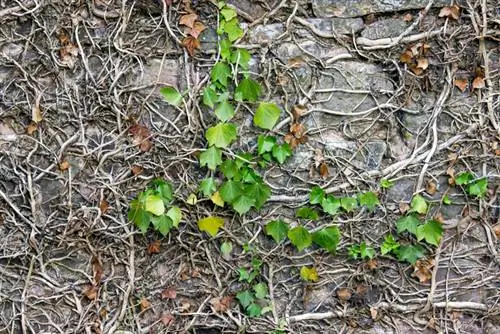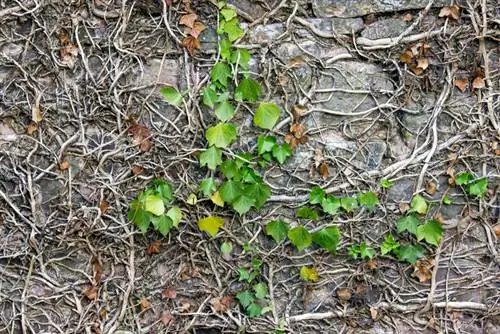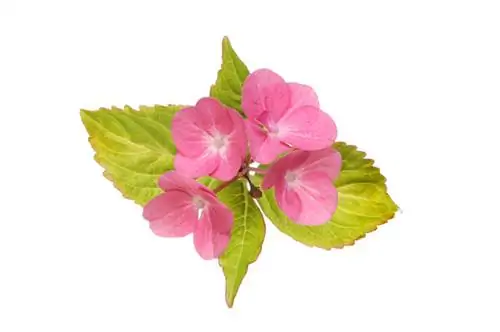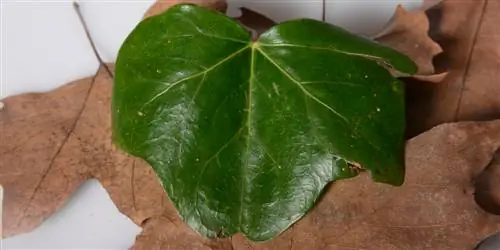- Author admin leonars@hobbygardeners.com.
- Public 2023-12-16 16:46.
- Last modified 2025-06-01 06:02.
If the ivy gets a lot of dry leaves, most plant lovers assume that they need to water more. However, other causes can also be responsible for the ivy drying out. Can dried ivy still be saved?

What to do if the ivy is dry?
If ivy dries up, causes such as lack of water, waterlogging, low humidity, root damage, pest infestation or frost damage can be responsible. To save dried ivy, you should first identify the cause and take appropriate measures, such as proper watering, pest control, or relocation.
Causes of dry ivy
- Too little water
- too much water
- humidity too low
- Root damage
- Pest Infestation
- Frost Damage
Ivy needs slightly moist soil at all times, but cannot tolerate waterlogging at all. If ivy dries up, you either forgot to water it or you watered it too much.
When there is waterlogging, the roots are in the water and rot. This means they can no longer absorb nutrients or moisture, so the leaves dry out.
Water ivy properly - even in winter
Water ivy whenever the surface of the soil has dried - both in the room and in the garden.
It is better not to place ivy in a pot in a saucer or planter so that excess water can always drain away straight away.
Outside, ivy needs enough moisture even in winter. Water it on frost-free days, especially if the winter is very dry. If there are a lot of dry leaves in spring, this is usually a sign that the plant has not received enough water.
Dried ivy caused by pests
Some pests such as scale insects suck out the leaf fluid. Therefore, combat pests in good time.
If there is ivy in the garden, the larvae of black weevils and cockchafers can be responsible for the ivy drying out. They eat the roots so that they can no longer draw water.
Saving dry ivy
If ivy in the pot has dried out, you can try placing the pot in a water bath for some time. Once the soil has become saturated, take the ivy out and let it drain. Cut off dried shoots.
If it is too wet, you should repot the ivy in fresh soil. Check beforehand whether the roots are still he althy. If the roots are rotten, the plant can no longer be saved.
Tip
Indoor ivy suffers from heating air that is too dry in winter. Mist the plant with water more often and set up a few water bowls. You should generally not care for ivy directly next to radiators.






